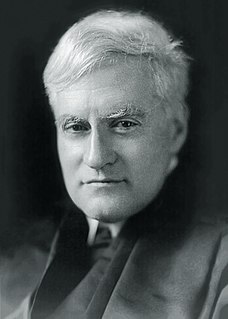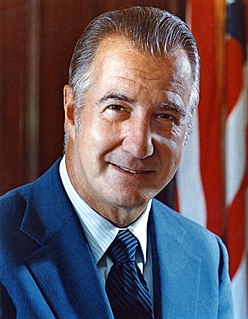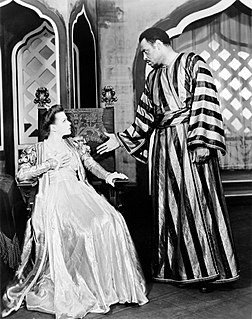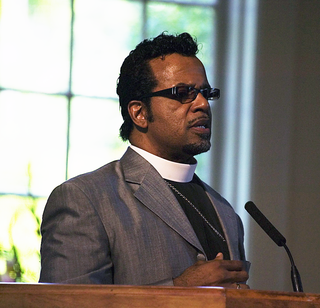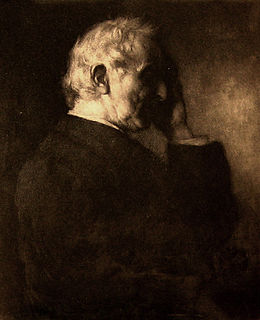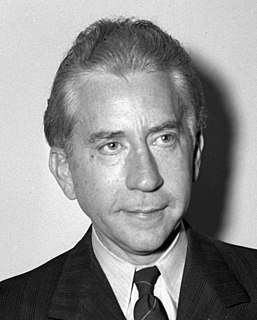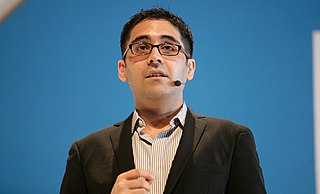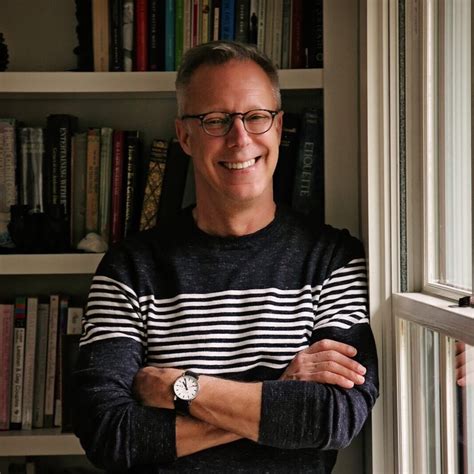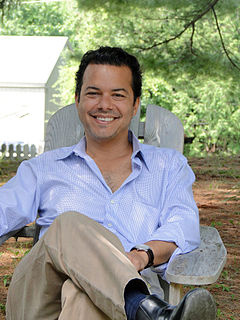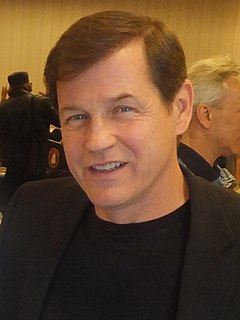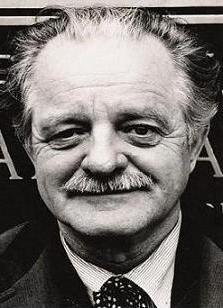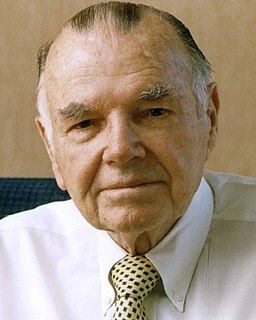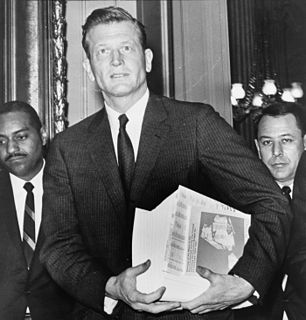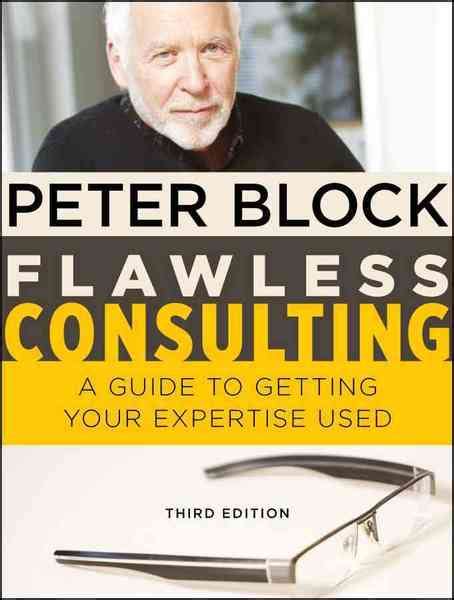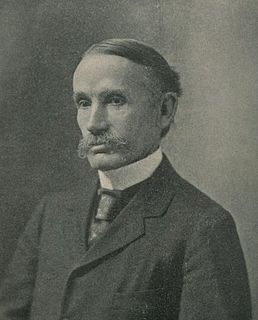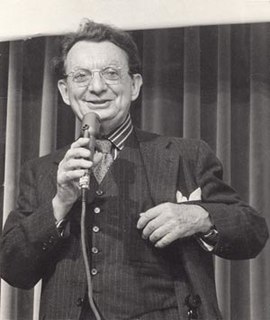Top 315 Dissent Quotes & Sayings - Page 5
Explore popular Dissent quotes.
Last updated on December 18, 2024.
More truly characteristic of dissent is a dignity, an elevation, of mood and thought and phrase. Deep conviction and warm feeling are saying their last say with knowledge that the cause is lost. The voice of the majority may be that of force triumphant, content with the plaudits of the hour, and recking little of the morrow. The dissenter speaks to the future, and his voice is pitched to a key that will carry through the years.
Bad news drives out good news. The irrational is more controversial than the rational. Concurrence can no longer compete with dissent. One minute of Eldridge Cleaver is worth ten minutes of Roy Wilkins. The labor crises settled at the negotiating table is nothing compared to the confrontation that results in a strike ... normality has become the nemesis of network news.
One must be wary of the view that these loose and diverse coalitions represent a new form of globalized participatory democracy. The dissent industry is largely a product of the Internet revolution. Inexpensive, borderless, real-time networking provides advocacy non-governmental organizations [NGOs] with economies of scale and also of scope by linking widely disparate groups with one common theme.
There are some things more important than ourselves - more important than the limits of the present, and the whims of the now. There is a future to build and protect. And if we're going to make that future as reality, we have to stop fighting among ourselves. We have to end dissent whenever we find it. We have to trust one another again.
This is the age of fear and so many of us feel afraid to speak out about what has happened to our lives in the wake of 9/11. Television promotes the world as a scary place for the United States and this justifies peeling away every element of privacy we had before. The media is monopolized so we don't even hear a lot of dissent about this new era.
The religious quality of Marxism also explains a characteristic attitude of the orthodox Marxist toward opponents. To him, as to any believer in a Faith, the opponent is not merely in error but in sin. Dissent is disapproved of not only intellectually but also morally. There cannot be any excuse for it once the Message has been revealed.
Trump was so different - in a bad way - that I thought the best thing I could do was to resist him. And that's because he was attacking the institutions of our democracy, from the First Amendment and the free press to the judiciary. He was stifling internal dissent, and then he was making false and misleading statements routinely. And to me, that's what takes us down the road to authoritarianism and that's why I decided to start resisting him.
Fox opposes a Syria peace plan because its modus operandi is to foment dissent in the form of a relentless and irrational contrarianism to Barack Obama and all things Democratic, to advance its ultimate objective of creating a deliberately misinformed body politic whose fear, anger, mistrust, and discontent is the manna upon which it sustains its parasitic succubus-like existence.
The peculiar evil of silencing the expression of an opinion is, that it is robbing the human race; posterity as well as the existing generation; those who dissent from the opinion, still more than those who hold it. If the opinion is right, they are deprived of the opportunity of exchanging error for truth: if wrong, they lose, what is almost as great a benefit, the clearer perception and livelier impression of truth, produced by its collision with error.
When governments go too far to punish people for actions that are dissent rather than a real threat to the nation, they risk delegitimizing not just their systems of justice, but the legitimacy of the government itself. Because when they bring political charges against people for acts that were clearly at least intended to work in the public interest, they deny them the opportunity to mount a public-interest defense.
To the everlasting credit of the people of District 12, not one person claps. Not even the ones holding betting slips, the ones who are usually beyond caring. Possibly because they know me from the Hob, or knew my father, or have encountered Prim, who no one could help loving. So instead of acknowledging applause, I stand there unmoving while they take part in the boldest form of dissent they can manage. Silence. Which says we do not agree. We do not condone. All of this is wrong.
What has happened now in mass media and advertising is not only that they've adopted the style and the look of fringe culture; that has been happening for a long time. What they've now done is gone a step further: They've now taken the very idea that there is any dissent at all - it doesn't even matter what form it takes - and made it part of how they're going to sell something.
There's definitely some sort of dissent brewing between record labels, publishing companies and artists [about the compensation they get from streaming services] Spotify is returning a HUGE amount of money [to the record labels]. If we continue growing at our current rate in terms of subscriptions and downloads, we'll overtake iTunes in terms of contributions to the recorded music business in under two years.
I understand that unless you have a government of laws, rather than a government of people, you cannot protect dissent. And I understand, as a woman who probably would have been burned in the marketplace for witchcraft only about 200 years ago, that I need the First Amendment more than anybody does. And that even if I am repelled by child pornography or Bob Guccione's productions, that I have to protect those things, because essentially it's in my self-interest to do so.
But let it not be said that we did nothing. Let not those who love the power of the welfare/warfare state label the dissenters of authoritarianism as unpatriotic or uncaring. Patriotism is more closely linked to dissent than it is to conformity and a blind desire for safety and security. Understanding the magnificent rewards of a free society makes us unbashful in its promotion, fully realizing that maximum wealth is created and the greatest chance for peace comes from a society respectful of individual liberty.
These unwritten amenities have been in part responsible for giving our people the feeling of independence and self-confidence, the feeling of creativity. These amenities have dignified the right of dissent and have honored the right to be nonconformists and the right to defy submissiveness. They have encouraged lives of high spirits rather than hushed, suffocating silence.
That community is already in the process of dissolution where each man begins to eye his neighbor as a possible enemy, where non-conformity with the accepted creed, political as well as religious, is a mark of disaffection; where denunciation, without specification or backing, takes the place of evidence; where orthodoxy chokes freedom of dissent; where faith in the eventual supremacy of reason has become so timid that we dare not enter our convictions in the open lists, to win or lose.
A simple way to determine whether the right to dissent in a particular society is being upheld is to apply the town square test: Can a person walk into the middle of the town square and express his or her views without fear of arrest, imprisonment, or physical harm? If he can, then that person is living in a free society. If not, it's a fear society.
Since the time of the ancient Greeks a democracy has depended on its philosophers and creative artists. It can only flourish by continuous probing, prodding, and questioning of the social conditions under which man exists and tries to better himself. One of the first moves of a dictatorship is to stifle the artists and thinkers who have the ability to stir up dissent from any prescribed dogma which might enslave them. Because the artist can arouse the curiosity and conscience of his community, he becomes a threat to those who have taken power.
Anytime that knowledge and a version of the truth are considered to be absolute, fundamentalism is the result, whether the arena is Christianity, Islam, Judaism, or any other religious faith, as well as atheism, conservative or liberal political views, even evolution or intelligent design. Anytime our minds are closed and there is no room for dissent, we are on a slippery slope towards stagnation.
Our media, which is like a planetary nervous system, are far more sensitive to breakdowns than to breakthroughs. They filter out our creativity and successes, considering them less newsworthy than violence, war, and dissent. When we read newspapers and watch television news, we feel closer to a death in the social body than to an awakening.
But you go to a great school, not for knowledge so much as for arts and habits; for the habit of attention, for the art of expression, for the art of assuming at a moment's notice a new intellectual posture, for the art of entering quickly into another person's thoughts, for the habit of submitting to censure and refutation, for the art of indicating assent or dissent in graduated terms, for the habit of regarding minute points of accuracy, for the habit of working out what is possible in a given time, for taste, for discrimination, for mental courage and mental soberness.
...Americans...automatically equate dissension with disloyalty. They view any criticism of our existing social, economic, and political forms, as sedition and subversion. ...(" The growing reluctance of Americans to criticize, and their increasing tendency to condemn those who, in ever dwindling numbers, will still voice dissent") is disturbing, deplorable, and truly dangerous.
Protection, therefore, against the tyranny of the magistrate is not enough; there needs protection against the tyranny of the prevailing opinion and feeling, against the tendency of society to impose, by other means than civil penalties, its own ideas and practices as rules of conduct on those who dissent from them.
When people are oppressed, and human rights are denied - particularly along sectarian lines or ethnic lines - when dissent is silenced, it feeds violent extremism, it creates an environment that is ripe for terrorists to exploit. When peaceful, democratic change is impossible, it feeds into the terrorist propaganda that violence is the only answer available.
If you want to live a meaningfully better life, you're going to have to make the dangerous choice to dissent. A life lived meaningfully isn't denominated by digital friends, designer logos, or wads of paper notes. It's denominated by what you've lived, what it's worth to you, and what that's worth to humanity.
I'm interested in the ongoing war between the individual and community. That inner dissent against whatever group is surrounding you. No one wants to cede their selfhood to a group, right? And yet no one can exactly live outside the group, either. Even the most obstinate survivalist probably lives in some telepathic communion with all the other obstinate survivalists out there in the woods.
Man is about to be an automaton; he is identifiable only in the computer. As a person of worth and creativity, as a being with an infinite potential, he retreats and battles the forces that make him inhuman. The dissent we witness is a reaffirmation of faith in man; it is protest against living under rules and prejudices and attitudes that produce the extremes of wealth and poverty and that make us dedicated to the destruction of people through arms, bombs, and gases, and that prepare us to think alike and be submissive objects for the regime of the computer.
Wherever you go, whether it be a college campus or the New York Times or ABC News or Venezuela or Cuba or the former Soviet Union, it's amazing how the speech codes and the trying to shut up dissent is a defining aspect of the left because they believe so firmly in their utopian ideals that anyone who would disagree with that utopia is an enemy of the state, and they treat them as such.
With the Black Lives Matter movement, a lot of the focus is on the protest and dissent. I'm hoping to dismantle the public notion - for folks outside of the community - of what Black Lives Matter means. It's really about saying that black lives matter: that humanity is the same when you go inside people's homes.
The United States is in a time of transition. Courts have redefined marriage, and beliefs about human sexuality are changing. Will the right to dissent be protected? Will the right of Americans to speak and act in accord with what the United States had always believed about marriage - that it's a union of husband and wife - be tolerated?
Okay, so here's my question: When did civility become incompatible with protest? Why do some people consider civility an antonym - anathema, even - to political action and dissent? Because, and I'm raising my voice, it's not. Have we forgotten how Mahatma Gandhi used nonviolent civil disobedience to free India from British rule and inspire civil rights movements worldwide?
Our politics are being hijacked by a comparatively small number of people who seek to dominate the debate by screaming the loudest. They see the world as an urgent struggle between true believers and nonbelievers. They attempt to impose strict litmus tests and insist on conformity. They demonize dissent and consider all political opponents their enemies. Fear is their favourite tactic as they try to divide and conquer
The Head and the body are Christ wholly and entirely. The Head is the only begotten Son of God, the body is His Church; the bridegroom and the bride, two in one flesh. All who dissent from the Scriptures concerning Christ, although they may be found in all places in which the Church is found, are not in the Church; and again all those who agree with the Scriptures concerning the Head, and do not communicate in the unity of the Church, are not in the Church.
Radical views that are outside the mainstream generally (but not always) are more reliable than the dominant view because they are more regularly challenged and tested against evidence. They do not get to float freely down the mainstream; they must swim against the current. They cannot rest on the orthodox power to foreclose dissent, and they are not supported by the unanimity of bias that passes for objectivity.
We live in a country where we're supposed to have freedom of the press and religious freedom, but I think to some degree, there's a sense of fear in America today, that if you say the wrong thing, what some people will consider what is wrong, if you step out of line, if you dissent, whether you be an entertainer, that somehow and some way this government or the forces to be will come down on you.
Perhaps no man is an island, but every man and woman is a nation unto herself. I actually had to look up the definition of "nation"; this is how awkward my relation is to this concept. And it is defined as, "a large aggregate of people united by common descent, history, culture, or language, inhabiting a particular country or territory." Perhaps if you replace "descent" with "dissent" the definition becomes more meaningful.
Look at the global warming issue. Why are the left so angry? They appear to be getting everything they want. The Pope's on their side. Big governments are on their side. The United Nations is on their side, but we aren't and they're lived. And who do they focus on? The deniers. And who are they trying to destroy? The deniers. They cannot tolerate. They will not tolerate. They cannot handle dissent. They don't want it.
We must not confuse dissent with disloyalty. We must remember always that accusation is not proof and that conviction depends upon evidence and due process of law. We will not walk in fear, one of another. We will not be driven by fear into an age of unreason, if we dig deep in our history and our doctrine, and remember that we are not descended from fearful men – not from men who feared to write, to speak, to associate, and to defend causes that were, for the moment, unpopular.
No matter the specific techniques involved, historically mass surveillance has had several constant attributes. Initially, it is always the country’s dissidents and marginalized who bear the brunt of the surveillance, leading those who support the government or are merely apathetic to mistakenly believe they are immune. And history shows that the mere existence of a mass surveillance apparatus, regardless of how it is used, is in itself sufficient to stifle dissent. A citizenry that is aware of always being watched quickly becomes a compliant and fearful one.
Today we hear a great deal about Organizational Men, Mass Culture, Conformity, the Lonely Crowd, the Power Elite and its Conspiracy of Mediocrity. We forget that the very volume of this criticism is an indication that our society is still radically pluralistic. Not only are there plenty of exceptionalists who take exception to the stereotyping of the mass culture but that very string of epithets comes from a series of books that have been recent best-sellers, symptoms of a popular, living tradition of dissent from things as they are.
We see political leaders replacing moral imperatives with a Southern strategy. We have seen all too clearly that there are men-now in power in this country-who do not respect dissent, who cannot cope with turmoil, and who believe that the people of America are ready to support repression as long as it is done with a quiet voice and a business suit. And it is up to us to prove that they are wrong.
Dissent is the cousin of diversity; the respect for a wide range of beliefs. This begins by allowing people the space to say "no". If we cannot say "no" then our "yes" has no meaning. Each needs the chance to express their doubts and reservations, without having to justify them, or move quickly into problem solving. No is the beginning of the conversation for commitment.
As the work progresses the careful reader will insert mental interrogation points here and there. He will find that his interest increases as the interrogation points become more frequent, and that it culminates where they are changed to marks of positive dissent. I venture to record the opinion that the value of the work reaches a maximum in a passage that is demonstrably incorrect.
There is one tradition in America I am proud to inherit. It is our first freedom and the truest expression of our Americanism: the ability to dissent without fear. It is our right to utter the words, 'I disagree.' We must feel at liberty to speak those words to our neighbors, our clergy, our educators, our news media, our lawmakers and, above all, to the one among us we elect - President.
It was in the 1960s that the left convinced itself that there is something fascistic about patriotism and something perversely "patriotic" about running down America. Anti-Americanism - a stand-in for hatred of Western civilization - became the stuff of sophisticates and intellectuals as never before. Flag burners became the truest "patriots" because dissent - not just from partisan politics, but the American project itself - became the highest virtue.
The prevailing move in American society to a permanent war status does more than promote a set of unifying symbols that embrace a survival of the fittest ethic, promoting conformity over dissent, the strong over the weak, and fear over responsibility, it also gives rise to what David Graeber has called a "language of command" in which violence becomes the most important element of power and mediating force in shaping social relationships.
Our nations are run by absolute worthless scum, our streets are taken over by sub-humans, the food we eat and the water we drink contains poison, our cultures are systematically replaced by "anti-culture", history is a big lie, et cetera et cetera. Of all the options I chose to start this blog, to spread dissent, to tell others - yes Burzum fans too - that there is an alternative to all of this.
[The] erroneous assumption is to the effect that the aim of public education is to fill the young of the species with knowledge and awaken their intelligence, and so make them fit to discharge the duties of citizenship in an enlightened and independent manner. Nothing could be further from the truth. The aim of public education is not to spread enlightenment at all; it is simply to reduce as many individuals as possible to the same safe level, to breed and train a standardised citizenry, to put down dissent and originality.
Some of our newspapers and magazines are more concerned with the welfare of their advertisers than they are with the dissemination of news and the discussion of matters of lasting importance. ...Radio, television, motion pictures, popular books - all contribute...to...the stifling of dissent on all but the most banal levels. ...a renunciation of the most basic and precious of democratic principles.
Technology is a tool, and it's a platform. Nobody gets arrested for being a blogger; people get arrested for dissent. Nobody gets arrested for putting information about themselves online; they get arrested for being an activist. I'm a strong believer in the fact that you should not blame the tools; you should blame the circumstances.
In an echo of earlier times, the climate change prophets have in recent years tried to silence counter views and suppress dissent. August members of the Royal Society, a body once noted for its cultivation of debate in science, are now leaders of the 'science is settled' camp: the only debate they consider to be legitimate is about choice among the different forms of the centralized action they believe is required to deal with the problems they foresee.
